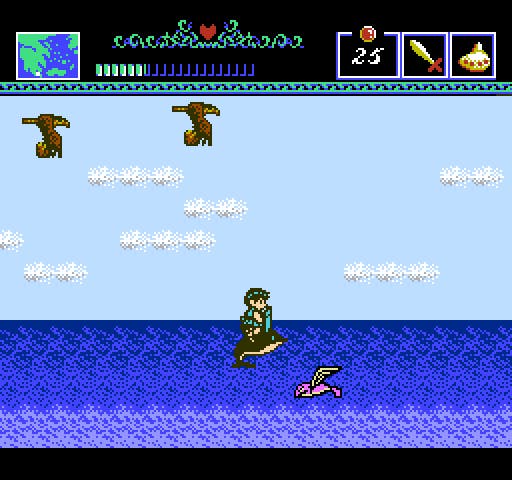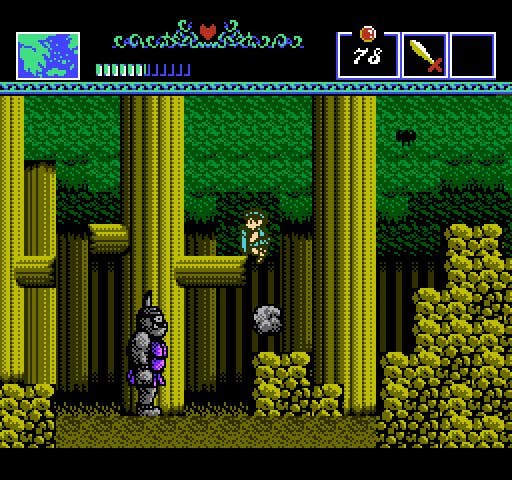Retrospective: The Battle of Olympus
Olive duty: ancient warfare.
This game just doesn't do "epic" very well - the great city-state of Athens, for instance, is a quiet little cul-de-sac with a couple of wimpy fountains and not a single decent bathhouse. That's OK, though, because even as Battle of Olympus whiffs on grandeur, it nails a quieter, strange Hellenic ambience.
One of my favourite moments comes early on when you stumble into a pit of venomous salamanders (which look suspiciously like pink snakes, but we'll forgive that). In the middle of this nightmarish hellhole, there's a tiny sub-cave where a man has made his home - not the best neighbourhood, but I suppose the rent's reasonable. He gives you a piece of life-giving ambrosia, cackles, and that's it. No explanation of what he's doing here or why he thinks this whole exchange is so hilarious. Just an old half-crazy person in a cave of poisonous amphibians.

The spare, remote weirdness of the scene is a theme of the game, where so many critical moments play out on the periphery of Greece. And as an adult, that's what appeals to me most about Greek mythology, rather than the gods - a sense of the rawness of this young society, on an uncertain cusp between anarchy and civilisation. Characters like the Sirens, labyrinth-obsessed King Minos, the oracles - they're all basically weirdoes playing at the fringes.
What makes the strangeness work in Battle of Olympus is that the game is so matter-of-fact about it. While you're wandering through Laconia, the teleporting, spell-casting crones known as the Graeae just suddenly appear - there's no fanfare, no big cut-scene building up to this boss fight. At Peloponnesus, Cyclops appears in similarly inauspicious fashion. The takeaway is that this weirdness is simply part of the fabric of mythological Greece. And as a result, the world is more intriguing and unsettling than it would be if Battle of Olympus tried to go the God of War route.
The game is helped immeasurably by a top-notch soundtrack, which captures a Mediterranean sound with amazing fidelity given the crudeness of the NES' audio capabilities. There's also an impressive range of feel across the various tunes, from the wistful melody of the Peloponnesus theme to the pulsing point-counterpoint you hear in Phthia.

To be sure, not all of the game's design has held up well. The quest is diverted two or three times by tedious quests to gather up dozens of olives - which drop occasionally from defeated enemies - because the gods demand you garnish their martinis before they'll hand over the best kit. And there's a reason that the Zelda II combat system never really caught on: stabbing with that little sword means that you often feel like you're trying to slay a dragon with a butter knife.
Still, Battle of Olympus endures not just because it's a distinctive, atmospheric platformer, but also because it provides an important counterpoint to the Kratos-ian vision of ancient Greece. God of War is, naturally, a game of godliness; Battle of Olympus is a game of mortality.
